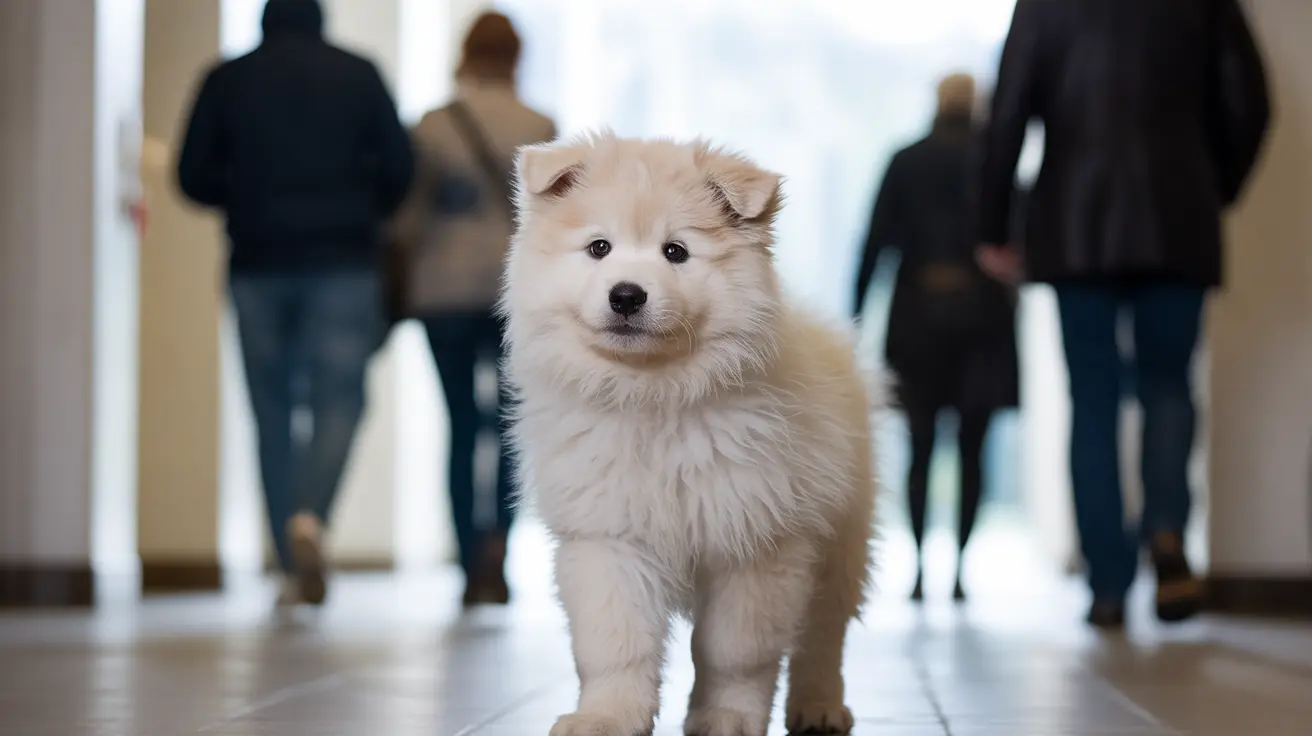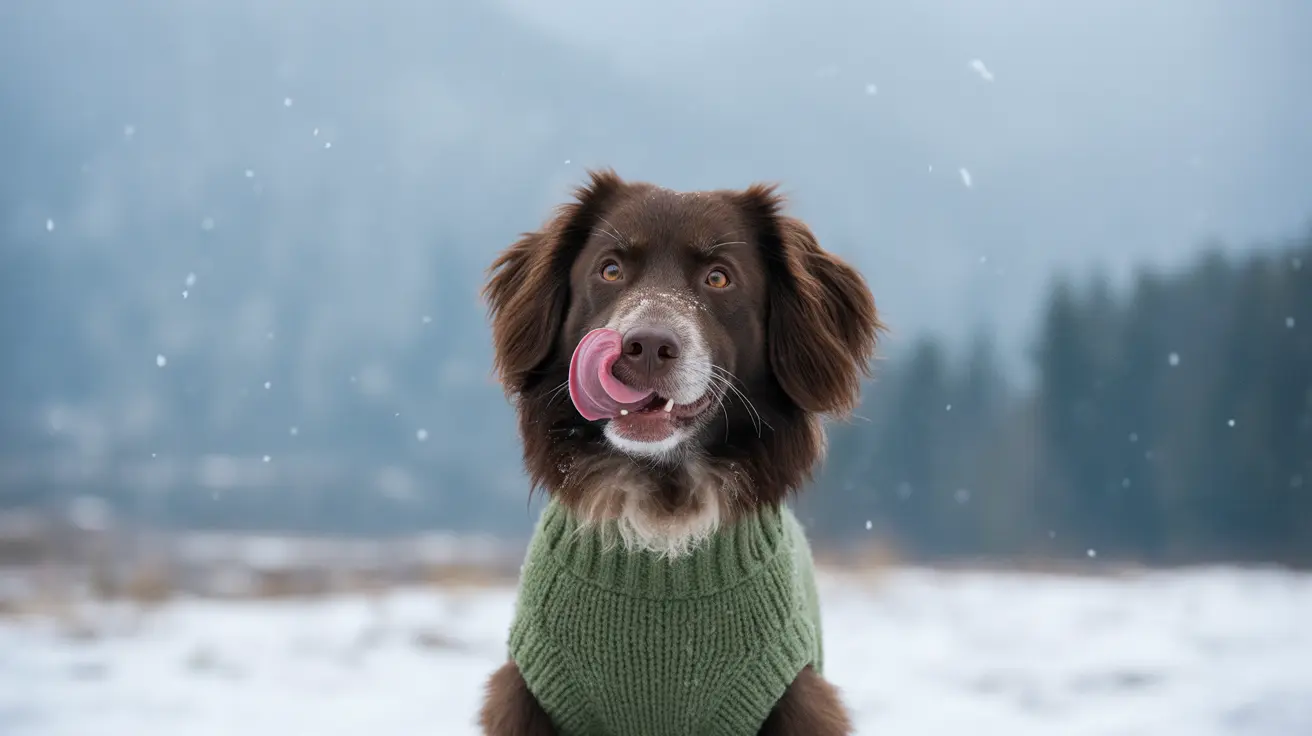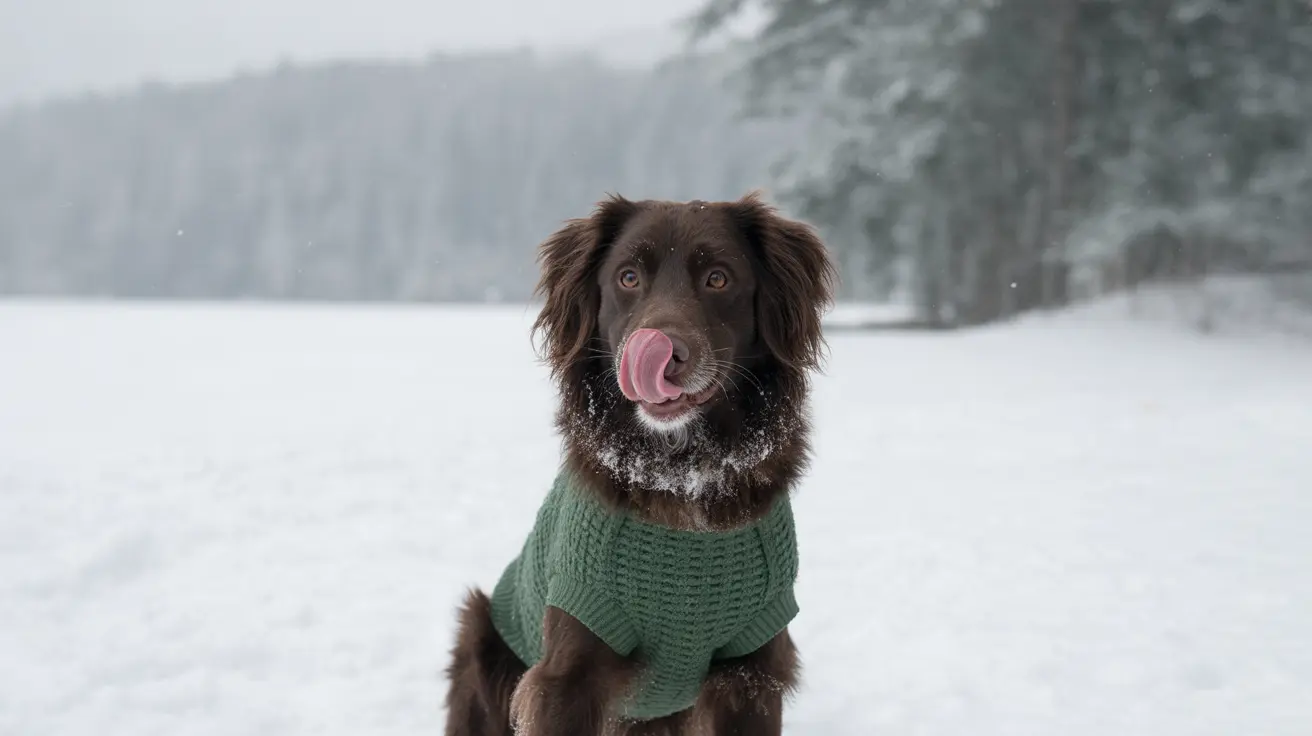Just like humans, dogs can get hiccups - those involuntary diaphragm spasms that create the characteristic "hic" sound. While dog hiccups are generally harmless and more common in puppies, understanding their causes and knowing when they might signal a problem is essential for every pet owner.
In this comprehensive guide, we'll explore everything you need to know about dog hiccups, from their typical causes to prevention strategies and warning signs that warrant veterinary attention.
What Causes Dog Hiccups?
Dog hiccups occur when the diaphragm - the muscle separating the chest from the abdomen - experiences involuntary contractions. Several common factors can trigger these spasms:
Eating and Drinking Habits
The most frequent cause of hiccups in dogs is eating or drinking too quickly. When dogs gulp their food or water, they often swallow excess air, which can irritate the diaphragm and trigger hiccups. This is especially common in excited puppies who haven't yet learned to pace themselves during meals.
Environmental Factors
Temperature changes, particularly drinking cold water or exposure to chilly air, can cause diaphragm spasms. Additionally, excitement, stress, and vigorous exercise can lead to rapid breathing patterns that may result in hiccups.
Prevention and Management Strategies
Controlling Meal Time
Using slow-feeder bowls or puzzle feeders can help prevent rapid eating. Breaking meals into smaller portions throughout the day can also reduce the likelihood of hiccups, especially for puppies prone to excited eating.
Creating a Calm Environment
Establish a quiet, peaceful setting for mealtimes to minimize excitement-induced rapid eating. Avoid vigorous play immediately after meals, and ensure your dog has access to room-temperature water rather than very cold water.
When to Be Concerned About Dog Hiccups
While most cases of dog hiccups resolve naturally within a few minutes to an hour, certain situations warrant veterinary attention:
- Hiccups lasting longer than a few hours
- Hiccups accompanied by difficulty breathing
- Additional symptoms like coughing, vomiting, or lethargy
- Frequent recurring episodes that seem unusually intense
Treatment Options
Most dog hiccups don't require specific treatment and will resolve on their own. However, if your dog experiences frequent hiccups, consider these approaches:
- Gentle belly rubs to help relax the diaphragm
- Light exercise like a calm walk
- Offering small sips of water
- Maintaining a consistent feeding schedule
Frequently Asked Questions
Why does my dog get hiccups after eating or drinking too quickly?
When dogs eat or drink rapidly, they often swallow excess air, which can irritate the diaphragm and trigger hiccups. This is particularly common in puppies and excited eaters.
How can I stop my puppy's frequent hiccups at home?
Use slow-feeder bowls, feed smaller portions more frequently, and create a calm eating environment. Gentle belly rubs and light exercise can also help resolve hiccup episodes.
When should I be worried about my dog's hiccups and see a veterinarian?
Seek veterinary care if hiccups persist for several hours, occur frequently, or are accompanied by other symptoms like difficulty breathing, coughing, or lethargy.
Can stress or excitement cause hiccups in dogs?
Yes, both stress and excitement can lead to rapid breathing patterns that may trigger hiccups. Managing your dog's emotional state and providing a calm environment can help prevent these episodes.
Are there specific foods or conditions that trigger hiccups in dogs?
Eating or drinking too quickly, consuming very cold water, and certain foods (especially spicy ones, which should be avoided) can trigger hiccups. Environmental factors like temperature changes and physical activity can also contribute to hiccup episodes.
Conclusion
While dog hiccups are usually harmless and self-limiting, understanding their causes and prevention can help minimize their occurrence. By implementing proper feeding practices and maintaining awareness of potential warning signs, you can ensure your dog's hiccups remain nothing more than a minor inconvenience.






